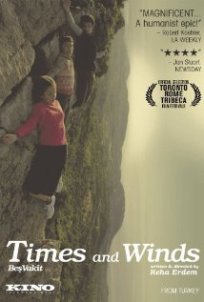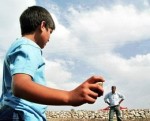Israel vs Israel
by Malcolm L. Rigsby
“Opens the mind and cries out to question the role of politics and nationalism which often play a diabolical role in developing relationships between human beings!”
Subject: Narratives from four Israeli Activists seeking peace and better lives for all citizens of Israel and Palestine.
Year: 2010
Arguably the dynamics of this film have been modified by the effects of operation “Pillar of Defense (October, 2012 – August, 2014). It may be that the setting of the film is now a bit dated and that the sentiments of those interviewed are now different. However in examining the aspirations which spring-board this film one must not be too hasty in discounting it value to time. Admittedly, the events of the most recent invasion of Gaza which began in October 2012 and arguably lasted until the August 24, 2014 may have strengthened the desire of many Israelis (citizen and politician alike) to seek further occupation of Palestine. However, it is imperative to note that the same events have energized many other Israelis to staunchly demand a solution for peace and mutual respect that both embraces a withdrawal of Israel from Palestine and terminating the occupation. From this point of view Israel vs Israel contributes much. The philosophy and goals expressed in the film remind us of the aspirations of our own Colonial-American-Colonial who cried to England for humanity. In our own history it is a cry that divides. Like our own colonial roots that created two groups of “patriot” and “traitor” we see this same portrayal in Israel today. Accordingly the narratives unfold; the everyday lives of people as they seek dignity and humanity.
The director, Terje Carlsson takes us on a narrative journey as he interviews some very different Israeli citizens. Are they the true patriots or are they the traitors of Israel? Common to all is their desire for a solution that will leave all people, Israeli and Palestinian, with dignity and self-respect. Artfully, often without specifying the point to be made, it is the “narrative” of each individual interviewed that allow us a hermeneutic evaluation of what it is that draws these people to a common cause for peace.
Israel vs Israel opens the mind and cries out to question the role of politics and nationalism which often play a diabolical role in developing relationships between human beings.
Carlsson offers us a succinct and forthright analysis of how the state is often manipulated by a powerful minority citizenry and in return it is the state that manipulates the nation to serve the goals of the powerful few. Zionism, politics, nationalism, humanity and citizenry intertwine throughout the film, but Carlsson through interviews and news footage segments each of these concepts and allows a clear look at what drives the divide between Israeli and Palestinian. The viewer will be impressed with the excellent sound and footage editing. The Choices Video website provides a guidebook for the film. The guide provides an excellent time line, synopsis of the film and poses a set of thoughtful questions that will assist the leader of a group discussion. An official Trailer for the film is viewable on YouTube and the video may be purchased at AgainstTheOccupation.
Review by: Malcolm L. Rigsby, J.D., Ph.D., Assistant Professor of Sociology and Criminal Justice. Department of Sociology Human Services and Criminal Justice, Henderson State University, Arkadelphia, Arkansas, http://socialworld1.wordpress.com/
Produced By: Terje Carlsson and Ekedalen Produktion
Directed by: Terje Carlsson
Distributed By: ChoicesVideo.net, Against The Occupation
Format: DVD, English, Arabic, Hebrew
Running Time: 58 minutes
Color/B&W: Color
Rating: Highly Recommended.
Audience Level: Jr. High, High School, College and General Adult.
Awards:
Public Liberties and Human Rights Award – Al Jazeera Documentary Fest 2011
President of the Festival Special Award One Shot – ISFF Festival 2011
Turkish Radio and Television Documentary Awards 2011
Tags: Against the Occupation, Israel, Israeli Occupation, Occupied Palestine, Palestine, Gaza, Israel Palestine, Hebron, Ramallah, Settlers, Occupation, Zionism, Yuhuda Shaul, Ronny Perlman, Arik Ascherman, Jonathan Pollack, Terje Carlsson





